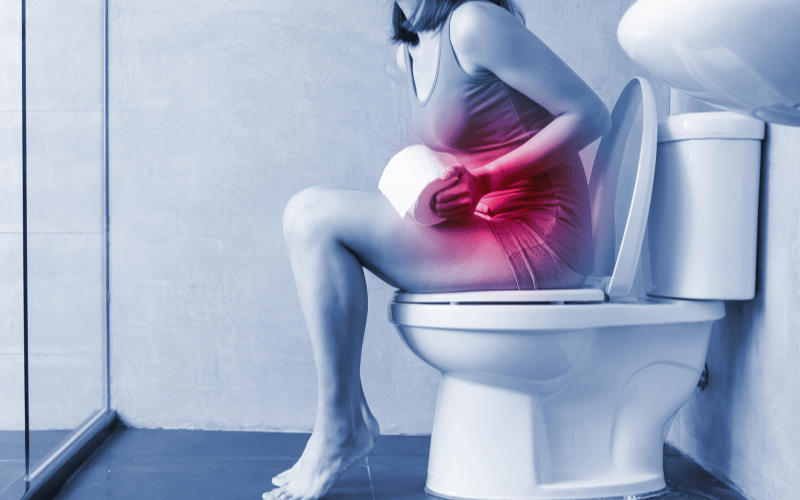Symptom 3: Constipation

One might find it puzzling that a condition like SIBO can cause both diarrhea and constipation, but it’s a testament to the complex nature of our gut environment. The methane gas produced by an overgrowth of certain bacteria can slow down the movement of food residue through the intestines. This slowdown, or reduced gut motility, results in stools staying in the colon for extended periods.
Extended stool retention can cause the stool to become hard and challenging to pass. This often results in painful bowel movements. Over time, the constant straining can lead to complications like hemorrhoids or anal fissures. Moreover, this reduced movement can also escalate fermentation rates, leading to additional gas and bloating, making the individual feel even more uncomfortable.
As stools remain in the gut for prolonged periods, it offers a fertile ground for bacterial proliferation. The increased fermentation, as mentioned, leads to gas, but it also results in the production of certain compounds that might be detrimental to the gut lining over time, potentially increasing the risk for conditions like leaky gut.
On the emotional front, chronic constipation can be draining. The continuous discomfort, bloated feeling, and physical pain can lead to feelings of frustration and despair. Furthermore, the unpredictability of when one might have a bowel movement can lead to anxiety, especially when traveling or being away from familiar settings. (3)